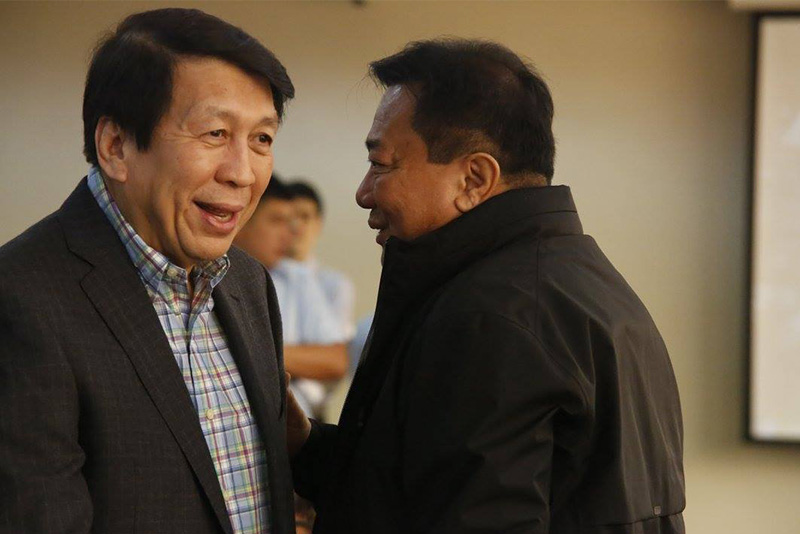MANILA, Philippines — House Majority Floor Leader and Ilocos Norte 1st District Rep. Rodolfo Fariñas was declared by his own province as unwanted and unwelcome.
The Ilocos Norte Provincial Board or Sangguniang Panlalawigan on Tuesday passed Resolution No. 2017-06081 declaring Fariñas, a resident of the province's capital of Laoag City, as “persona non grata.”
SP member and lawyer Vicentito “Toto” M. Lazo and Vice Gov. Angelo Marcos Barba sponsored the resolution.
The term “persona non grata” means an “unwelcome person,” implying that the individual is prohibited by the government from entering its jurisdiction after their ordinances and laws were violated by that individual.
SP member and lawyer Da Vinci Crisostomo, however, clarified that the declaration of “persona non grata” does not prohibit Fariñas from entering the province, but it was made to “manifest or express” their sentiments towards the congressman.
Fariñas had initiated an inquiry into Ilocos Norte’s alleged misuse of tobacco funds under Republic Act 7171 or “An Act to Promote the Development of the Farmers in the Virginia Tobacco-producing Provinces,” citing in contempt six employees of the provincial government of Ilocos Norte. The six government employees known as the “Ilocos Six” are being detained under the custody of the House of Representatives since May 29.
The House also said it is ready to detain Ilocos Norte Gov. Imee Marcos if she continues to defy summons to appear before the committee investigating the fund misuse.
READ: House may free Ilocos 6, but warns Imee of arrest
Crisostomo, however, reminded Fariñas of his alleged anomalies during his term as Ilocos Norte governor. He said the former governor was charged in 2002 with illegal use of public funds in connection with the purchase of a brand new 1995 Jeep Cherokee Laredo using a cash advance sourced from the tobacco excise tax.
Regarding the Cherokee purchase, the Commission on Audit Finding 8 under OMB-97-2150 stated that “there was no approved contract or purchase order perfected but instead there were communications between the contracting parties through fax and pro-forma invoices.”
READ: SC, CA chiefs ask House panel to rethink order vs 3 CA justices
The COA further noted: “[T]here was no approval from the Department of Budget and Management and the Office of the President for the purchase of the car in violation of NBC No. 446 series of 1995.”
Crisostomo said that in addition to the Cherokee, the fund had also been used to purchase a Ford Crown Victoria.
The SP member said Marcos' cash advances were used for the benefit of the farmers unlike Fariñas' which was used, he argued, to buy a luxury vehicle and a sports utility vehicle for personal use.


